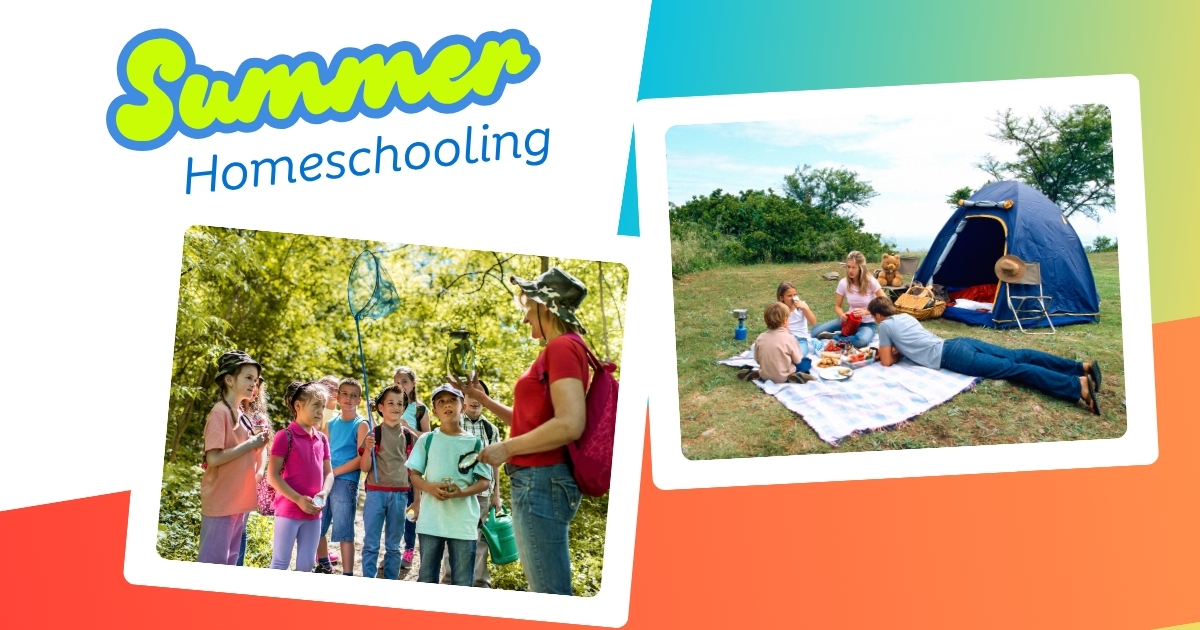Summer is here, and for homeschooling families, the learning doesn’t have to stop when the temperatures rise. While summer often means a break from structured lessons, it also presents a golden opportunity to explore creative and interactive ways to learn. By combining education with summer adventures, parents can keep their kids engaged, curious, and prepared for the coming academic year.
Here are some excellent summer homeschool activities to make this season both fun and educational for your children.
Outdoor Learning Adventures
The summer season calls for plenty of outdoor exploration, which makes it an excellent time for kids to engage with nature and learn outside the four walls of a classroom. These activities promote physical activity, critical thinking, and an appreciation for the environment.
- Nature Scavenger Hunts
Create a list of items like specific leaves, rocks, or bugs and take the kids on a nature walk to find them. You can tie this activity to lessons on biology, ecosystems, or even geography.
Tip: Use a magnifying glass or binoculars to spark curiosity about the smaller details of nature.
- Gardening Projects
Gardening offers hands-on lessons in science. Teach kids about plant life cycles, photosynthesis, and even responsibility as they help grow and maintain plants.
Idea: Assign each child a patch of the garden or a container to grow their own plants, measuring and tracking growth weekly.
- Outdoor Art
Provide art supplies like chalk, paint, or colored pencils and encourage children to draw landscapes, study shadows, or create leaf rubbings. This sparks creative expression while building observation skills.

- Camping and Stargazing
Even a backyard campout can be a rich educational activity. Discuss constellations, identify planets, and explore topics like navigation by the stars. Add a scientific twist by researching the myths behind star patterns.
Hands-On STEM Activities
STEM (science, technology, engineering, and mathematics) projects can feel like play, but they pack a lot of educational punch. During the summer months, you can create exciting experiments and activities that blend real-world applications with essential skills.
- Water-Based Science Experiments
Fill a bucket with water and explore concepts like buoyancy by testing which objects will sink or float. Kids can also learn about water density by mixing saltwater and freshwater to observe changes.
Challenge: Create a homemade water filter using only natural materials like rocks, sand, and a cotton cloth.
- Homemade Weather Stations
Use household items to build tools like thermometers, barometers, or wind vanes. Then, track local weather patterns, graphing changes over time.
- Building Challenges
Create engineering opportunities by giving kids materials such as popsicle sticks, tape, cardboard, and rubber bands. Challenge them to build structures, bridges, or vehicles that solve specific problems.
- Kitchen Chemistry
Take science to the kitchen with baking soda and vinegar reactions, homemade slime, or bread baking. These fun experiments reinforce lessons on chemical reactions, measurement, and patience.
Incorporating Weekly Themes
Adding themed weeks into your summer homeschool activities brings variety while creating excitement for what’s next. Some examples include:
- Animal Week
Dedicate days to studying different animals. Visit a farm, zoo, or aquarium. Read books, create animal fact cards, or incorporate art by making animal masks and habitats.
- History Week
Focus on a specific historical period or figure. Conduct book readings, listen to podcasts, or host a “living history” day where kids dress up and act in character.
- Around the World Week
Choose a country and spend the week learning about its culture, language, and cuisine. Cook a traditional meal and discuss its historical or cultural background.
- Science Week
Go deep into specific areas of science like astronomy, geology, or marine biology. Host mini-experiments or day trips to science museums and natural history centers.
Balancing Freedom with Routine
While summer is often a time for flexibility, maintaining some structure supports both productivity and continuity in learning. Parents can strive to strike a balance between unstructured play and educational moments.
Studies suggest that even short daily routines help children stay mentally active. Set aside half an hour in the morning for reading or journaling. Discussing these activities over lunch can reinforce comprehension and verbal communication skills. Families may also explore flexible weekly goals, such as completing one STEM project or visiting one educational site each week, to keep kids motivated without overwhelming them.
Experiment with unconventional learning hours too. Outdoor activities in the morning, quiet educational tasks during the hottest parts of the day, and evening discussions make use of the natural rhythm of summer days.
Reading Focus
The slower pace of summer is perfect for fostering a love of reading. Fiction, non-fiction, graphic novels, or audiobooks – anything that excites your child’s imagination can become a valuable resource.
Set up a “summer reading challenge” with fun incentives like homemade certificates or special family outings. Introduce theme-based reading, such as mysteries during camping trips or ocean stories for a beach week.
For younger children, this time of year provides more freedom to explore phonics, story comprehension, and creative storytelling. Older kids could be challenged to research a topic, culminating in a project or presentation to the family.
This approach turns reading into more than just a pastime—it becomes a foundation for critical thinking and exploration.
Incorporate Practical Life Skills
Homeschooling during the summer is an excellent chance to introduce kids to practical skills that foster independence and life readiness. Create opportunities for learning through regular activities such as:
- Cooking Lessons
Teach kids how to follow recipes, measure ingredients, and manage cleanup. For added education, discuss nutritional values or explore international dishes.
- Budget Basics
Introduce older children to the concept of expenses and savings. Plan a pretend grocery trip or design a mock budget for a summer party.
- Outdoor Survival Skills
Teach fire safety, knot-tying, orienteering, and basic first aid, blending adventure with practical knowledge.
- Home Maintenance
Invite kids to assist with gardening, organizing, or small repair tasks. Explain how these skills contribute to household management.
These activities not only boost confidence but also extend learning beyond books into real-world contexts.
Exploring Art and Music
Summer creates an ideal backdrop for exploring art and music. Organize an art show featuring your child’s creations or dedicate afternoons to making crafts like pottery, tie-dye, or bead jewelry.
Introduce music by exploring instruments, composing simple melodies, or even making DIY noisemakers from household items. Local concerts or open mic nights could further expose kids to the joy of creative expression.
Art and music are not only creative outlets but also excellent opportunities to develop problem-solving skills, patience, and fine motor coordination.
Field Trips for Summer Engagement
Field trips inject adventure into learning and often feel less like school and more like fun excursions. Create a summer bucket list of educational outings that cater to your child’s interests:
- Visit science centers with interactive exhibits.
- Tour a local farm or botanical garden.
- Explore historical landmarks or reenactment sites.
- Spend a day at a coastal area to study marine life or dunes.
- Join ranger-led programs at national parks to connect with wildlife and conservation efforts.
Field trips are often the highlight of summer homeschool activities, adding vibrant experiences kids will remember for years.
Homeschooling through the summer isn’t about replicating traditional school schedules—it’s about blending education with the season’s natural energy. By keeping learning lighthearted, hands-on, and rooted in real-world experiences, you can ensure your children enjoy a rich, educational summer while fostering excitement for lifelong learning.





